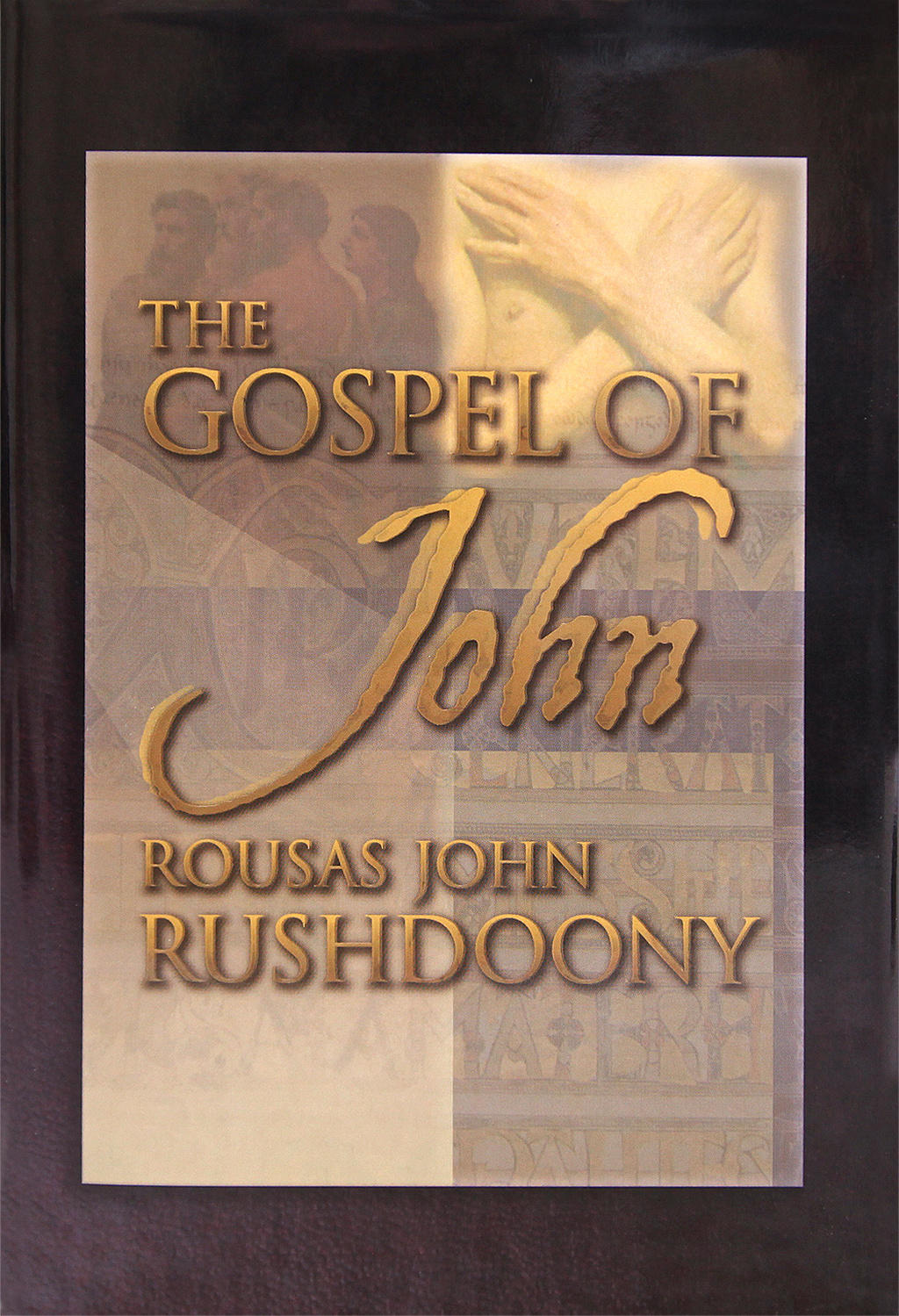
Gospel of John, The
In this commentary the author maps out the glorious gospel of John, starting from the obvious parallel to Genesis 1 ("In the beginning was the Word") and through to the glorious conclusion of Christ's death and resurrection. Nothing more clearly reveals the gospel than Christ's atoning death and His resurrection.
Hardcover

- R. J. Rushdoony
Jesus is the true bread of life, come down from heaven. His flesh, His true humanity, is our bread of life; this He gives for the life of the world. We are in Him no longer the sinful and death-bound sons of fallen Adam, but the just and life-bound people of the last Adam. Christ gives us His flesh, His glorious humanity, so that we are remade into people of righteousness and eternal life.
In this commentary the author maps out the glorious gospel of John, starting from the obvious parallel to Genesis 1 ("In the beginning was the Word") and through to the glorious conclusion of Christ's death and resurrection. Nothing more clearly reveals the gospel than Christ's atoning death and His resurrection. They tell us that Jesus Christ has destroyed the power of sin and death. John therefore deliberately limits the number of miracles he reports in order to point to and concentrate on our Lord's death and resurrection. The Jesus of history is He who made atonement for us, died and was resurrected. His life cannot be understood apart from this, nor can we know His history in any other light. This is why John's "testimony is true," and, while books filling the earth could not contain all that could be said, the testimony given by John is "faithful."

- R. J. Rushdoony
Rev. R.J. Rushdoony (1916–2001), was a leading theologian, church/state expert, and author of numerous works on the application of Biblical law to society. He started the Chalcedon Foundation in 1965. His Institutes of Biblical Law (1973) began the contemporary theonomy movement which posits the validity of Biblical law as God’s standard of obedience for all. He therefore saw God’s law as the basis of the modern Christian response to the cultural decline, one he attributed to the church’s false view of God’s law being opposed to His grace. This broad Christian response he described as “Christian Reconstruction.” He is credited with igniting the modern Christian school and homeschooling movements in the mid to late 20th century. He also traveled extensively lecturing and serving as an expert witness in numerous court cases regarding religious liberty. Many ministry and educational efforts that continue today, took their philosophical and Biblical roots from his lectures and books.